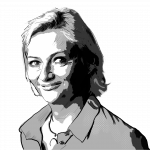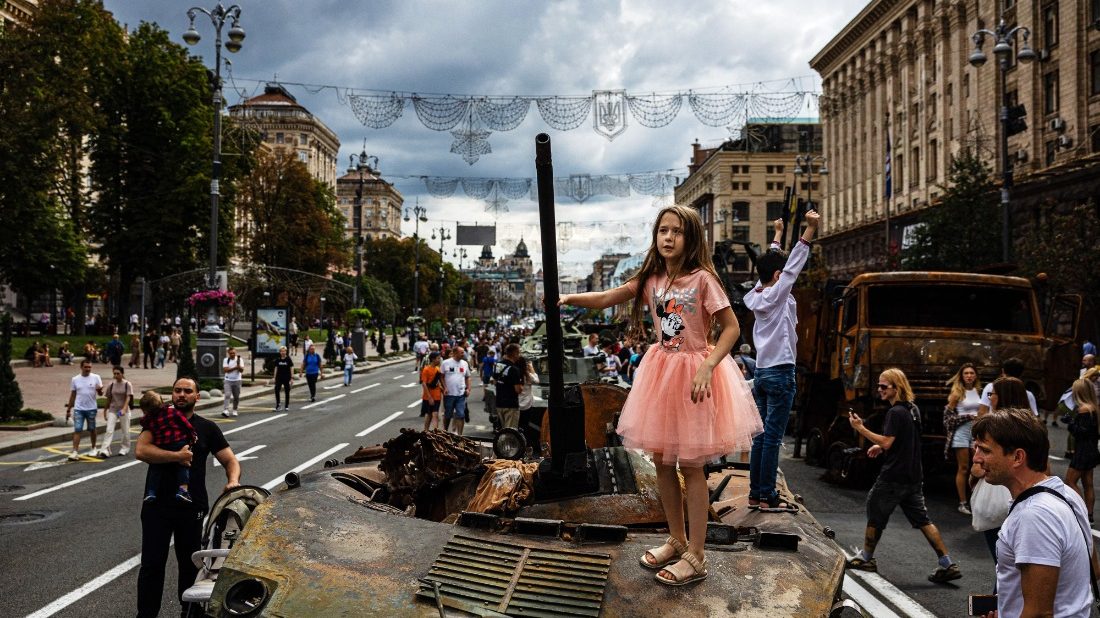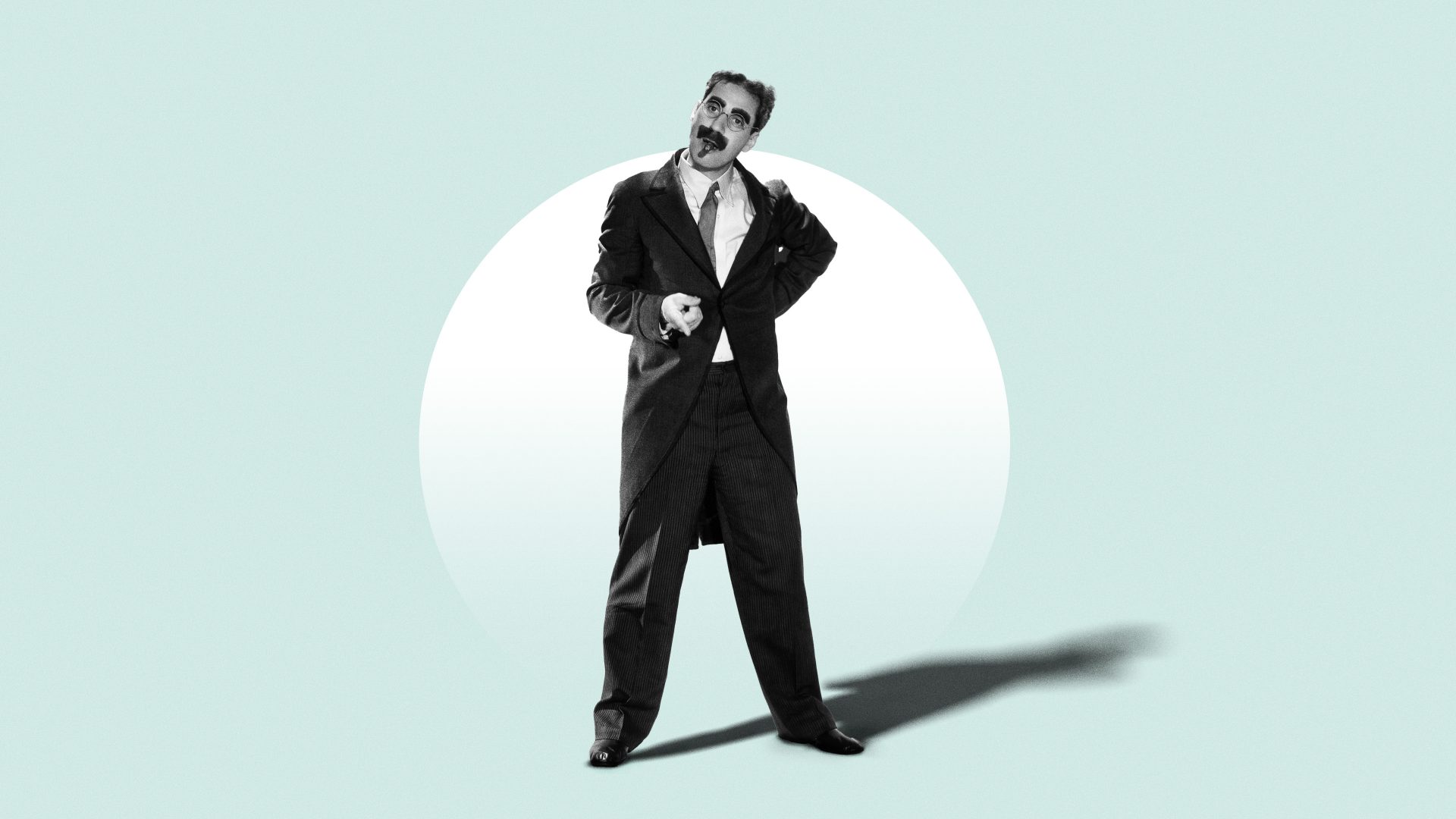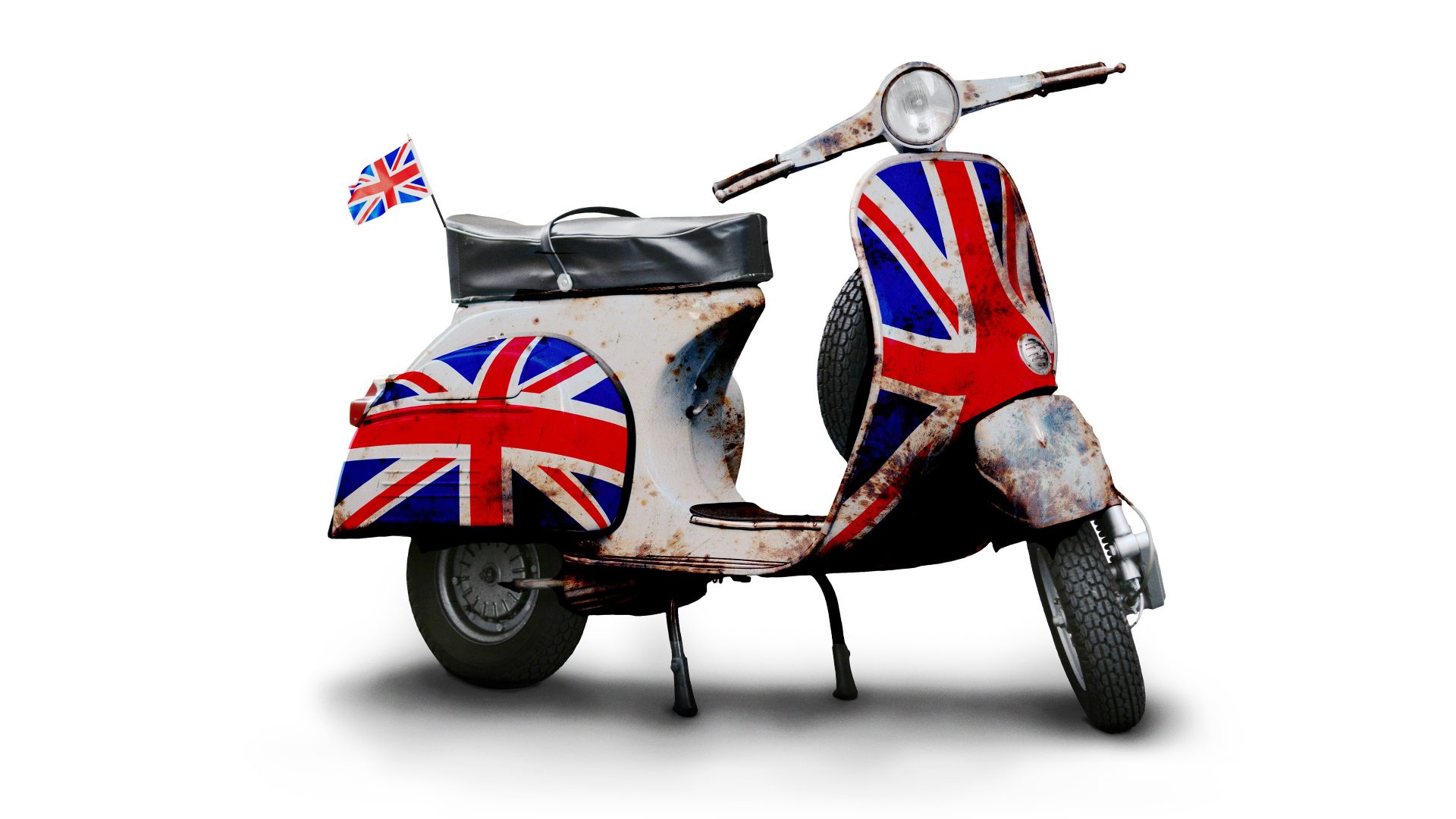The people of Kyiv have got used to the sirens. Air-raid alerts sound in the day or in the middle of the night, sometimes giving little notice, while at other times the attack never comes. They also rang out this week when Volodymyr Zelensky strolled in the Kyiv sunshine alongside Joe Biden, who made a surprise visit to the Ukrainian capital.
The symbolism of the moment was powerful and unmistakable. The US – and by association, its western democratic allies – was standing firmly with Ukraine. The footage of the two walking to St Michael’s Cathedral as the air-raid sirens blared out in the background was a clear indication to Vladimir Putin that, a year into this war, international support for Ukraine is as strong as ever. It also sent a signal to Beijing that China should think very carefully before supporting Russia’s war effort. Recent reports suggested that China was considering whether to supply Russia with weapons.
Biden also has political divisions at home over Ukraine. Hard-right “America First” Republicans don’t like spending money on foreign wars and want the US to reduce its commitment to Ukraine. This was also a signal to them – not a chance.
Ukrainians will have been cheered by the sight of Biden in Kyiv. But beneath the excitement of his visit, what is the mood of the city? What do the people feel, as the anniversary of Putin’s invasion draws near? When incoming missiles are detected by Ukrainian radar, air-raid alerts are sent to mobile phones: “Go and take shelter immediately!”
When the warnings go out and the sirens begin to wail, some people run down to the metro, or head for one of the windowless shelters whose location is indicated by signs all over the city.
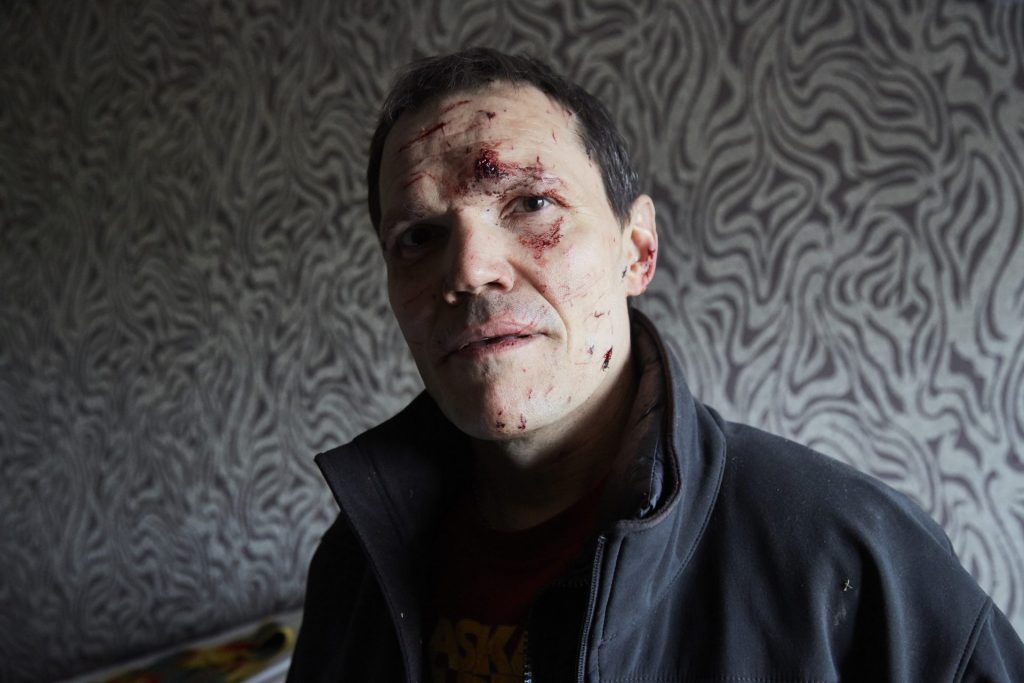
But most people in Kyiv continue to go about their business as if nothing is happening, out of both fatalism and a desire not to let the Russians dictate their schedule. The only time I care about it,” says Stella Beniaminova, a dentist and art collector, “is when I’m in the shower. If a missile falls, I’d hate to be naked in the street!”
The cafes are full, the young people are scooting, the opera is playing Bizet’s Carmen. On the evening of February 10, Brecht’s The irresistible rise of Arturo Ui was being performed at the National Theatre. At around 6pm, the anti-aircraft sirens sounded and the theatre closed its doors, but the streets did not empty. Crowds of spectators ignored the sirens and went to the show. On the same day, other Ukrainian cities were struck and energy sites were hit, but most of the projectiles were destroyed in flight by Ukraine’s anti-aircraft defence system. Vitali Klitschko, the mayor of Kyiv, later said that 10 missiles had been shot down over the city.
The city lives with war, with the air-raid sirens, and with the ministries protected by sandbags and “Czech hedgehogs”, anti-tank obstacles made of crossed steel beams. Everywhere you go in Kyiv, in the suburbs or in the city centre, you see buildings pierced by bombs. The war is everywhere – the war that some people thought the Russians had won in advance but to which the incredible resistance of the Ukrainian people has given another twist. The war that we had imagined would be short and that has dragged on for a year.
From Kyiv to Odessa, from Lviv to Kharkiv, they all tell the story of waking up a little after 5am on February 24, 2022 to the noise of the first bombs or, for those who were asleep, the panicked phone calls: “Can’t you hear that we are being bombed? The Russians are coming!” All over the country, Ukrainians remember in detail, one year later, that precise moment when one man, and one man alone – frustrated by his thwarted dreams of imperialist grandeur – decided to launch a full-scale invasion.
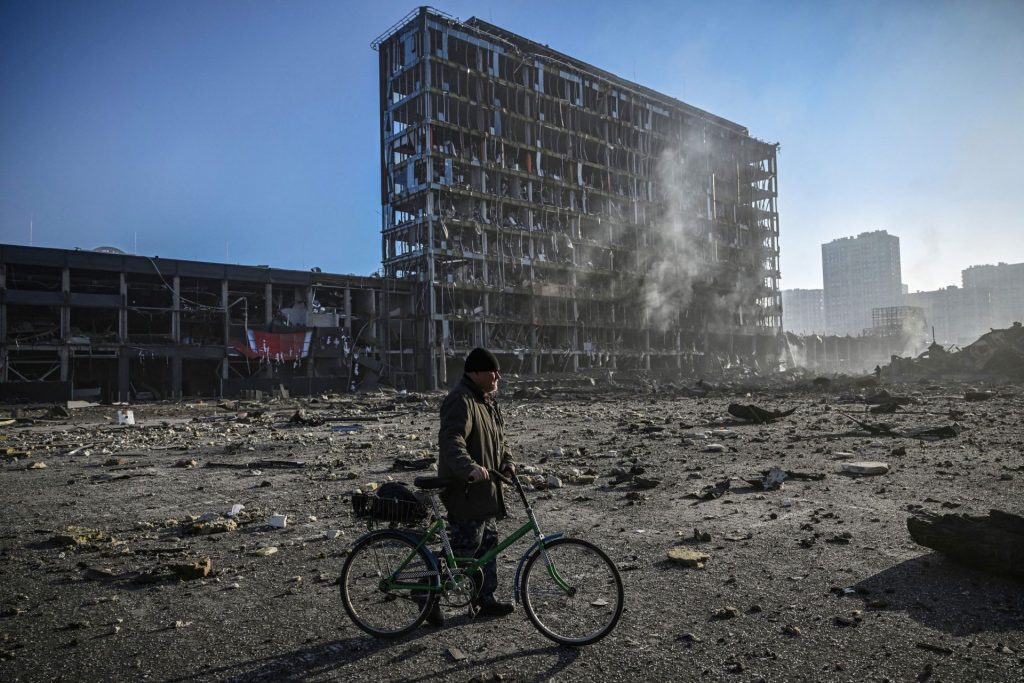
In a grey building on the left bank of the Dnieper River, a rickety lift goes up to the 13th floor, where Irina Berliand and Anatoliy Ahkutin have their small apartment. Both are Russian. She is a psychology researcher and he is a chemist and philosophy professor, and since 2000 the two of them have been following the rise of the former KGB officer and his mafia-like methodology. “When you have the communists and the KGB in power, you have half the problem,” says Ahkutin.
“When you have the KGB alone in power, you have the whole problem.” He describes the Putin years as “a long drip that ran through our veins, drop by drop. People didn’t realise what was happening to them. Then one day, boom, there was Maidan and the year 2014.” That was the year when pro-European demonstrations erupted in Kyiv’s Maidan Square, when Russia annexed Crimea by force and held a puppet referendum, and when pro-Russia separatists backed by the Kremlin started fighting in the Donbas.
In the days that followed the Russian invasion of Crimea, Berliand wrote on her Facebook page: “Russia is at war with Ukraine and in this war I want to be on the right side. Not on the side of the strongest, but on the side that is right. So it is in Ukraine that I want to be, even if Ukraine loses.” In August 2014, Berliand, who is 65, and Ahkutin, 82, sold their Moscow home, gathered their savings, packed up the dog and cat and took the train to Kyiv, permanently.
Every day for the past year, Berliand has gone to a shopping centre on the river. A hangar has been set up there for an association of hundreds of volunteers who, like her, spend what time they can making equipment for Ukrainian soldiers on the frontline, in the Donbas and in the south. Since 2014, the space has become a craft factory where huge anti-drone camouflage nets are silently woven, where containers for Molotov cocktails are also made as well as periscopes, mine detectors “made of a secret metal”, paraffin candles in tins to heat the soldiers in the trenches, not forgetting Ukrainian flags for morale. Companies provide what they can. Even children come by after school to help out, twisting bits of khaki and brown cloth, or white for the snowy areas, on to the camouflage nets. On the wall hangs a gun that shot down a Russian helicopter, and flags dedicated by grateful generals. Helping them is my only therapy,” says one of the weavers. She is close to tears. She left her father and brother in the Donbas.
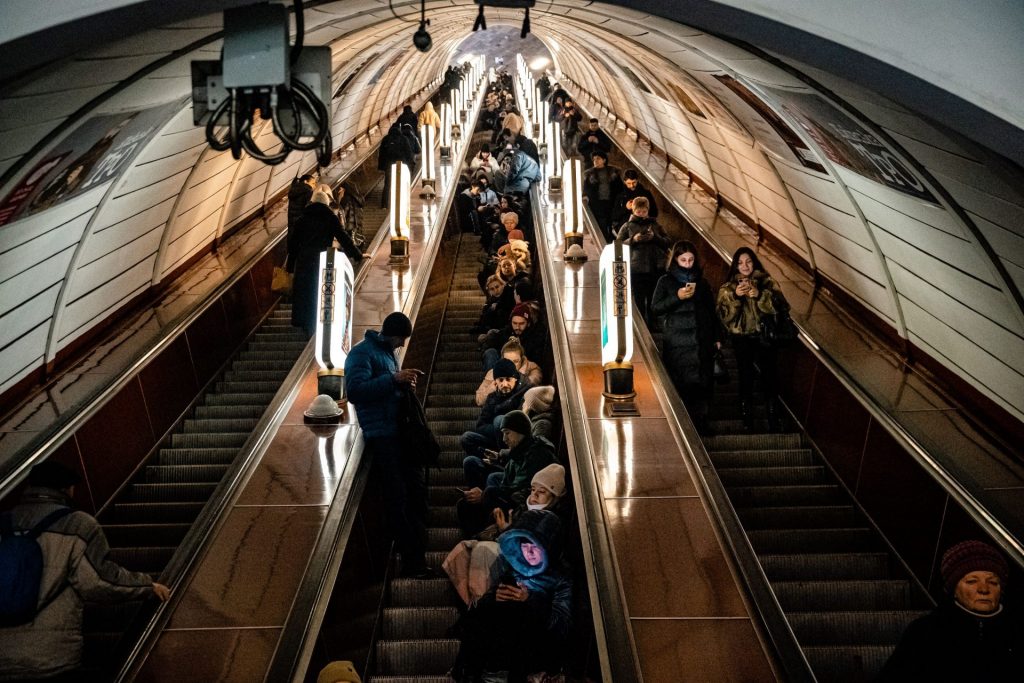
“What can I do?” is the question everyone is asking, and they are all getting involved in their own way.
Leonid Finberg, who runs the Duh i Litera (Spirit and Letter) publishing house, has decided to provide soldiers with the only weapon he knows how to use: books. “He turned the famous collection of the greatest Ukrainian romantic poet Taras Shevchenko, Kobzar, into a pocket-sized volume with a camouflage cover. He printed 5,000 copies and distributed them to wounded combatants. “This is my first response to the war,” Finberg says, pointing to letters from soldiers thanking him. His wife, Olena, who is a doctor, treats victims of war trauma and writes fairytales on a website for children, like the story of a cat from Bucha who accompanies a soldier to the front. Further into the city, Yevgenia Sizontova and her husband, both retired physicists, make freeze-dried food for the soldiers. They have bought a machine, converted their kitchen into a factory and their small flat into a warehouse full of ready-to-go packages.
Even former leaders are making a contribution. Petro Poroshenko was once president of Ukraine. He is leader of the European Solidarity Party and was Volodymyr Zelensky’s rival in the 2019 election. Poroshenko made a fortune in the chocolate industry, and he has now founded the “Poroshenko Battalion”, a military formation of about 800 men, including about 20 politicians. Former prime minister Yulia Tymoshenko, the figurehead of the Orange Revolution, is now an opposition MP. After the invasion, she and her colleagues gathered around Zelensky, agreeing to forget political battles and form “a single Ukrainian team”.
“In a few weeks, Ukrainian society was transformed,” Tymoshenko says. The divisions between the pro-Russian east and the pro-Ukrainian west are no longer even visible. MPs, both men and women, were given machine guns to defend their city. The whole country has become a united team, volunteering when they are not taking up arms. In Kyiv, in the first days, you could see people ready to stop the tanks with Molotov cocktails. They will do it again if they have to.
There were 3 million inhabitants in Kyiv before February 24. Some people have left, but others have come into the city to get away from the fighting at the frontlines, meaning Kyiv’s population is close to its peacetime level. The people here are in no mood for compromise. Just listen to Ukrainians and they soon make it very clear what they think about the idea of “negotiating” with Putin “to allow peace”. How can you negotiate with an aggressor who wants to take over your country by force and who denies it the right to exist?
The people of Kyiv and elsewhere know that victory is the only way to ensure future peace on the European continent, and they will go all the way. “If the Russians come back, I will never leave Kyiv. I’ll live in a car park if I have to,” says Kateryna Mutchenko, an executive in a real estate investment company that has created a fund for its 30 employees who have left to fight.
And if Putin proposed a ceasefire? “That’s his dream!” says Mikhailo Podolyak, one of Zelensky’s main advisers, in his office, where his helmet and bulletproof vest lie next to a collection of sports shoes. “Putin’s dream is to freeze a line of confrontation that would allow him to stand as a victor, having conquered some territory. It would give him time to renew his arsenal of weapons, while infiltrating Ukraine with terrorists, trying to disunite the allies and Europeans among themselves, and the war will go on in other dimensions. The usual Russian strategy. We will go to the end because it is the existence of our nation that is at stake.”
At Mohyla University in Kyiv, rector and former education minister Serhiy Kvit counts Ukraine’s wars and revolutions since the fall of the USSR. He has fought in them all, and the university has always been a key participant, including back in 1991, when Ukraine faced a struggle to become an independent state. In 2004, during the Orange Revolution, thousands of students and professors demonstrated every day in the streets of the capital. In 2013 and 2014, they were back out again for the “revolution of dignity” on Maidan Square, protesting against the abandonment of an association agreement with the European Union.
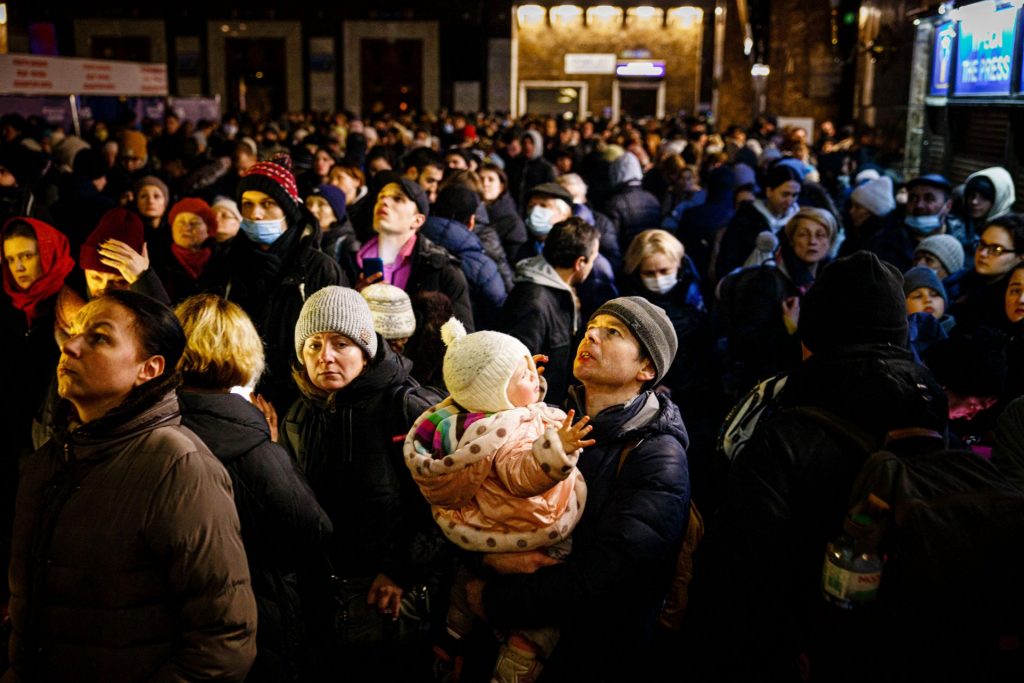
“These three revolutions were European,” Kvit points out. “Ukraine fought to belong to Europe. For freedom of expression, for the level of education, for a state of law free of oligarchs and corruption. In 2023, becoming a member of the EU and Nato has become our main goal.” On February 24, Kvit sat in the university’s office to defend it. He returned home every three days, to the south-western border of the city. “I found my neighbours with their machine guns. They had set up barricades and were quietly waiting for the enemy. It was amazing.”
Vsevolod Stebliuk is a military doctor who has been involved in the national guard since 2014, and has spent time performing emergency surgery on injured soldiers on the frontline, in Bakhmut.
“I had never experienced two regular armies face to face, equally powerful and equipped. It’s very, very violent,” he says calmly. The same day, at the Munich security conference, his president called on his allies to be faster in their support. His adviser, Podolyak, says: “You are overestimating Russia’s capabilities. Their resources are already exhausted. They are using their reservists and equipment from the Soviet period. They can’t sustain this intensity for more than six months. The war may be shorter than we think.”
The US secretary of state, Antony Blinken, recently suggested that China is “considering providing lethal support to Russia”. If that is the case, then the war is entering a different phase – Biden’s visit to Kyiv was surely a signal to China to stay out.
In the meantime, in the office where she manages her real estate investments, Mutchenko takes out her frustrations on her computer. She changes her password according to her mood. From “DiePutin2022”, she changed it to “DiePutin2023”. Now it’s “DiePutinImmediately”.
Marion van Renterghem is a French journalist and winner of the Albert Londres prize

